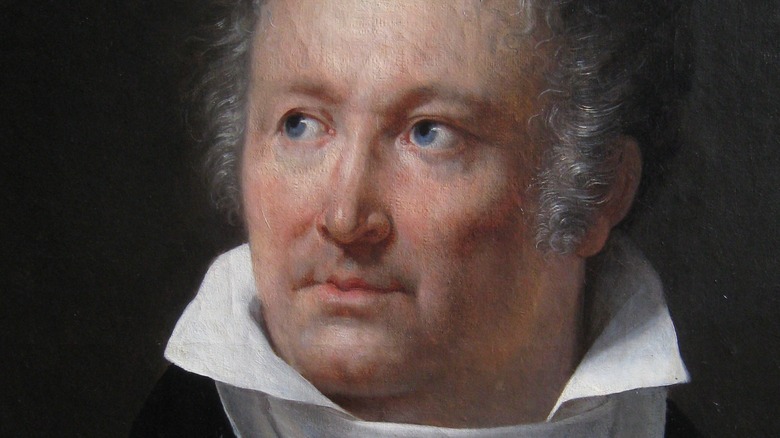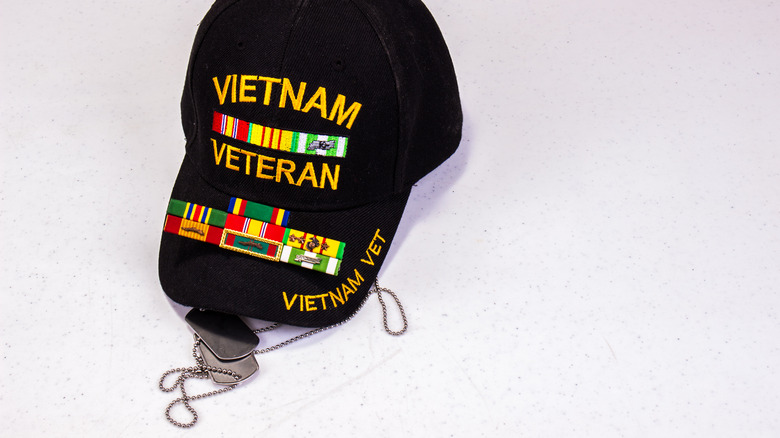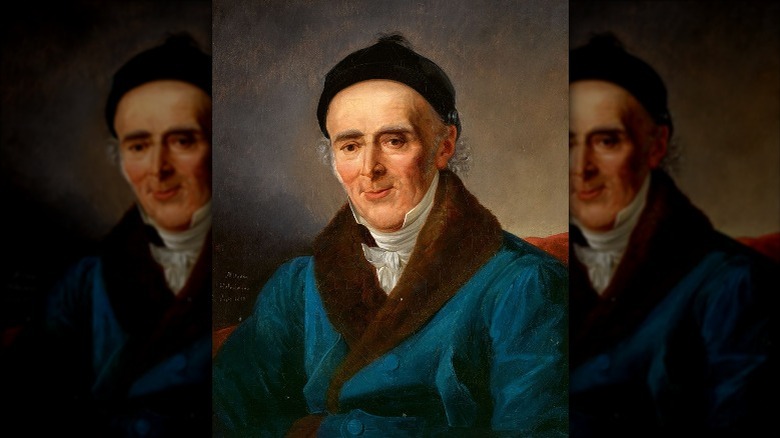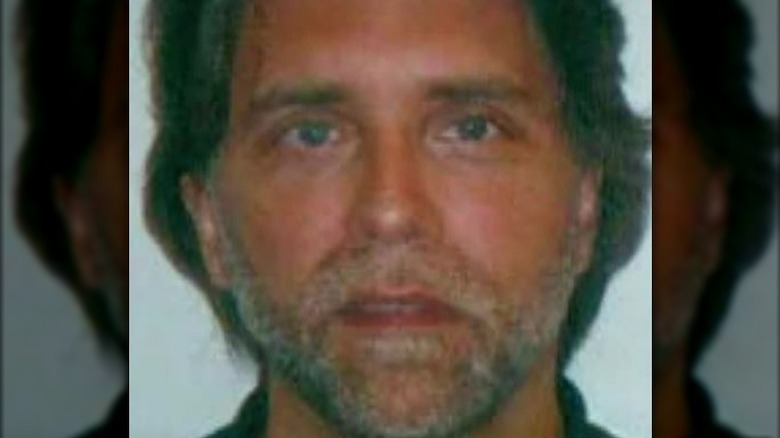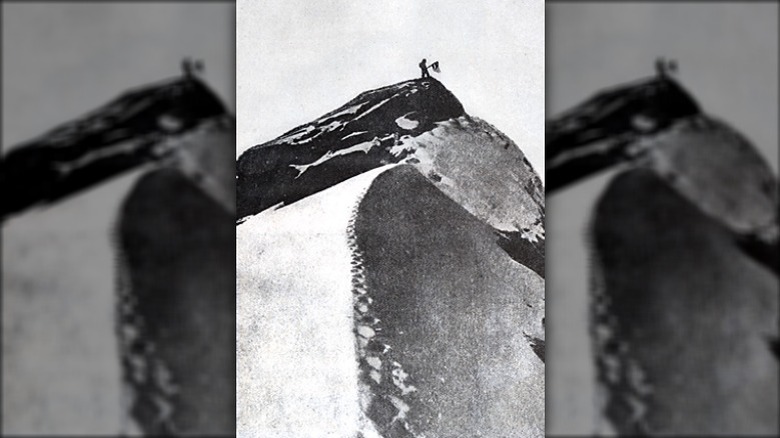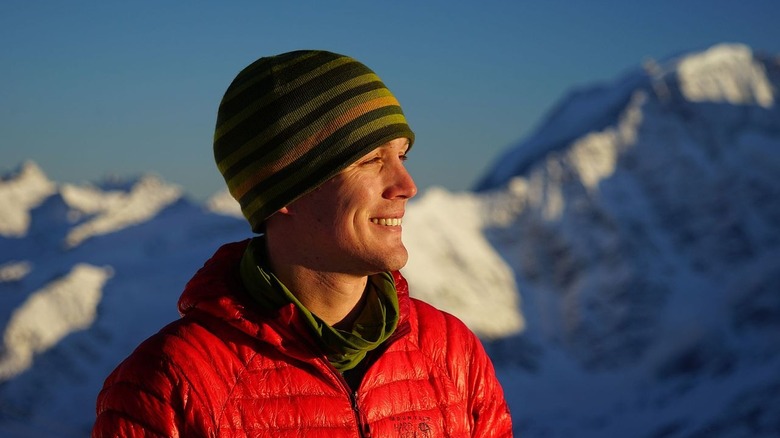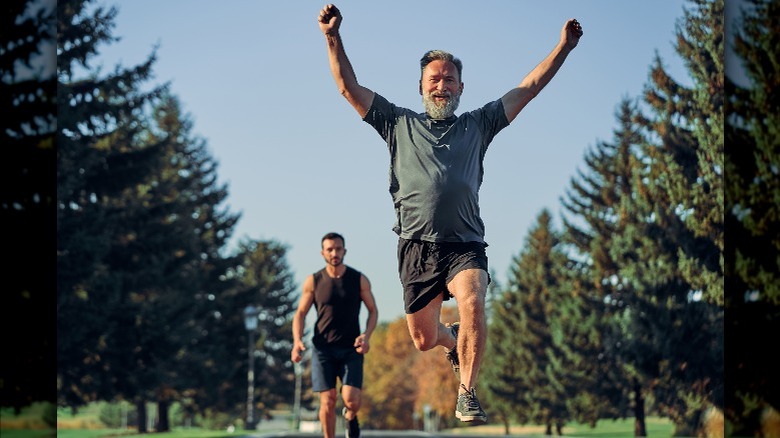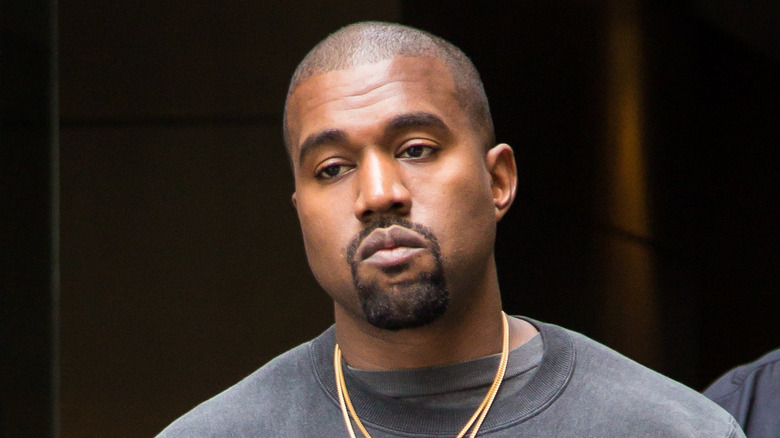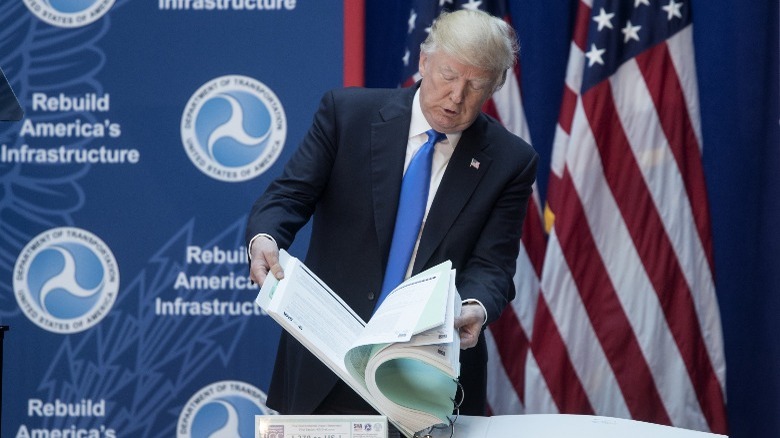Times Someone In History Claimed They Were The Best, But Weren't
Everyone exaggerates their accomplishments from time to time. Whether it's as small as claiming to have read "War and Peace" to impress a Tinder date or something more involved, like telling them you've been hard at work writing the definitive translation of the book in English for five years. It's a normal part of being human, the need to tell a little white lie about your achievements so others in your peer group will think you are cool or their equal or agree to a second date.
The key is not pushing your luck. A passing comment is one thing, but if your date starts telling you about their Masters thesis on the symbolism of the oak tree in Leo Tolstoy's epic, you need to come clean. If you keep pushing a big lie about how much you've achieved, getting found out goes from a little embarrassing to a huge deal.
It's not only regular people looking for love who lie about doing impressive stuff. Everyone from celebrities to criminals to people with legitimately impressive achievements will claim to not only be really good at something, but the best in the whole world. And just like you when you come back from the bathroom and your date has bailed, when they get caught in their lie, it can be so much worse than if they'd come clean earlier. Here are people who claimed they were the very best at something but were really just full of it.
Most decorated in Vietnam
Stolen valor is kind of a big deal. While you might not be pro-war or even pro-military, everyone can agree that lying about your putting your life on the line for any cause or reason is not cool. But, according to the military news website Task and Purpose, incidents of stolen valor happen a lot more than you'd think, although they are rarely prosecuted.
The military is big on keeping records when one of their own achieves something, so much so that everyone wears their accomplishments across their chest in bright ribbons and shiny medals. Englishman Roger Day learned the hard way that faking this requires some research, according to Vice, when he wore an "impossible number of medals" to a Remembrance Day parade and was quickly caught in his lie.
In 2016, Vietnam vet Stephen Douglas Holloway was at a Veterans Day event when he told a reporter for The Times Free Press that he was the most decorated veteran from the conflict, with over 50 medals, nine of them Purple Hearts and one a Silver Star. These astonishing claims immediately raised some eyebrows among people who know about these things. The Times Free Press spent over a year looking into his alleged medals (via Task and Purpose), and while Holloway did serve in Vietnam and earned at least three medals, there is no "convincing documentation" for the rest, just pretty obvious forgeries littered with basic errors. Holloway still maintains they are real and that he is the most decorated Vietnam vet.
Claimed he could cure everything
The German doctor Samuel Hahnemann got his medical degree in the late 1700s, according to an article in the Journal of the Royal Society of Medicine. He spent 15 years barely getting by on the money he earned practicing medicine, yet when he died in 1843, he was a millionaire. So what changed? It turns out, Hahnemann had made an astonishing medical discovery: He could cure everything.
Since everything is, in fact, not cured, it's obvious Hahnemann was wrong about his status as the greatest doctor of all time. But this didn't stop him from founding the practice of homeopathy. You are probably familiar with this branch of alternative medicine or wellness and most likely have a strong opinion about it. Medical professionals in Hahnemann's time did as well. The idea that a sick patient could be cured as long as you gave them medicine that mimicked the symptoms of their disease was ludicrous. It was made even more so by Hahnemann's belief that the medicine should be diluted to an absurd degree in order to work best. Even his followers tried to downplay some of Hahnemann's more extreme pronouncements in an attempt to get the medical establishment to take them seriously.
But Hahnemann and his treatments were popular, if only because at the time, proper medicine was barbaric. For a sick person, the hope of getting well from drinking some magic water probably seemed a lot better than, say, having a limb cut off without anesthesia or disinfectant. Sadly, all the patient got was that hope, as Hahnemann could not cure everything, or indeed, really anything.
The highest child IQ
To get it out of the way first thing, no, it is not the child who lied here. The person making the false claims in this instance was his mother, who pushed the child into situations they wouldn't have been in if she didn't go to great lengths to make this up. The kid is blameless.
According to The New York Times, Justin Chapman maxed out an IQ test aged 3, scored a perfect 800 on the math section of the SAT around the same time, and in 2000, aged 6, he became the highest recorded IQ on a second test, clocking in at 298+. (The plus is a lovely detail.) There was documentation to prove all of these astounding feats, so by 5, Justin was taking online high school classes, and a year later he started college. He gave speeches at conferences, met politicians, and was featured in a BBC documentary. The director of the Center for Gifted Development called him "beyond genius" and "probably unique in the world."
But once reporters started looking into these claims, they fell apart. Even more tragically, perhaps because of the enormous pressure of living a lie he didn't choose to tell, by the time he was 8, Justin had also started to fall apart, experiencing suicidal ideations before eventually being hospitalized. When The New York Times asked his mother Elizabeth why she faked the records of Justin's intelligence, she said, "I didn't plan on it. It just happened, and I let things get out of control."
The highest adult IQ
When it comes to the terrible things Keith Raniere did, this is admittedly not in the top 50 or so. If the name rings a bell, you've probably read an article or book on the NXIVM cult, or seen one of the many true crime takes on it. NXIVM was a cult disguised as a self-help group for highflyers. Raniere was the leader, aided in his horrible deeds by "Smallville" actress Allison Mack. These included branding women and manipulating them into having sex with Raniere.
When it came to the cult leader's technically legal but still immoral behavior, the bio on his official website said, "Keith Raniere was honored in 1989 by the Guinness Book of World Records in the category of highest IQ." (Lest you think him immodest, the bio also stated that while "He has an estimated problem-solving rarity of one in 425,000,000 with respect to the general population," Raniere only claimed he was "one of the top three problem solvers in the world.")
Investigative reporter Frank Parlato, who was heavily involved in exposing NXIVM, debunks this IQ claim on his own website. Raniere took an IQ test called the Mega Test, which claimed, without proof, to be the hardest in the world. It was a take-home, untimed test, with no oversight. Raniere claims he aced it in a remarkably short time, and then, to be sure, he conducted his own study to prove how smart he was, of which there was no documentation at all.
Raniere is currently serving 120 years in prison.
The first man to summit Denali (and maybe to reach the North Pole)
There is a lot of controversy over who deserves the title of first person to reach the North Pole. Fredrick Cook claimed he made it in 1908, while Robert Peary said he got there almost exactly a year later – and that Cook had lied about his accomplishment, so Peary was really the first. The argument continued the rest of their lives, and even into today.
However, we know for sure that Cook lied about a different first, before he ever made it (or not) to the North Pole. His claim he was the first man to summit the Alaskan peak Denali, the highest in the United States – complete with photographic evidence – was a total fabrication. Just like with his North Pole expedition, there are those today who believe Cook really managed the summit, but no less a source than the National Parks Service itself says it's not true. In 1998, news of the discovery of an uncropped, unretouched photo that seemed to be the final nail in the coffin for Cook's claim was considered so important, the New York Times made it a front-page story.
But the controversy had started long before then; in fact, immediately after Cook said he made it to the top of what was then called Mount McKinley in 1906. Other mountaineers poured over Cook's claims of which route he took, how fast he took it, and the photo he released of his climbing partner on the "summit" (pictured). It all pointed to a big lie, that Cook hadn't gotten anywhere near the top of the dangerous mountain peak.
Completing an 'impossible' Antarctic crossing
In 2018, Colin O'Brady (pictured) – whom OPB gives the fabulous job title of "professional outdoor adventurer" – claimed he had become "the first person to successfully traverse Antarctica from coast-to-coast alone and without wind assistance." He then wrote about his supposedly amazing feat in the not-so-subtly titled book "The Impossible First."
But other adventurers were not having it. National Geographic Magazine even reported O'Brady might have been embellishing his feat. In most cases, it wasn't that people were questioning if he actually did cross Antarctica on his own in some manner, but rather O'Brady's claim that the route he took was considered "impossible." In fact, the word other Antarctic adventurers used to describe it was "worthless." Fellow adventurer and writer Aaron Teasdale explained, "The problem is Colin is saying, 'I did something everyone thought was impossible. People had been trying to do this for 100 years. A guy before me died trying to do what I did. I cracked the code.' Those were his words. None of those things are true." When Teasdale talked to other adventurers about the supposed impossible feat, they were unimpressed. "In fact, they said the reason no one had done it before is because no one took it seriously," Teasdale said.
Besides that, questions were raised about if O'Brady even was the first to do what he claimed, how much assistance he did or didn't have, and if he was really told by a logistics company before the trip that it was so dangerous, no rescue would be possible if things went wrong (the company denies ever saying that).
The most accomplished marathon runner
A deep dive by runner Mark Singer in The New Yorker proved that Kip Litton, a dentist by day, also claimed to be an impossibly prolific and successful marathon runner. Especially considering his age and claims he only took up running relatively recently, the feats he was boasting of would have made him the most talented marathon runner in the world, easily.
But what was strange about Litton's claims was that he didn't actually come out and say he was the best; he was much more subtle than that. But he made sure people knew of his alleged accomplishments, even if that meant making up sock-puppet accounts to sing his praises or contacting reporters to get articles on his alleged feats published in the paper. He also kept a detailed and regularly updated website for all his fake marathon times, and even invented marathons for himself to "win." Adding it all up, it's clear Linton was saying he was the best in every way possible, while also trying to come off as somewhat humble about his impossible achievements.
And the work he put into faking being the best was astonishing. In almost all cases, it seems he really did attend the marathons in question – he just didn't run most of the course. As Jennifer Straughan, one of the race directors said, "He flies all over the country, rents cars, plans in advance, has to figure out how many chip mats there are, how you deal with those. Think about how hard you have to work to not run a race."
The richest Black man in the world
Kanye West (now legally going by Ye) has been open about his bipolar diagnosis and the fact that he decided to go off his medication some time ago. He has since acted extremely erratically and hopefully will get the help he needs. Anything grandiose that he says could therefore be attributed to his mental health struggles, but his bragging about being the best at something, at least in this instance, is much more in line with his core personality. So, hopefully, it's safe to point out that one claim he made about his many accomplishments is definitely wrong.
In 2019, Kanye gave evidence to Forbes that he thought proved he was a billionaire. However, the magazine hedged its bets, since the documentation was lacking. Since then, the magazine has agreed that Kanye can call himself a billionaire, but the numbers are still pretty questionable.
Despite the confusion around his finances. It's clear Kanye is very, very rich. But is he the richest Black man, period, as he claimed in an interview with Hollywood Unlocked? (He did so while railing at his ex-wife Kim Kardashian, but that is a whole other issue right there.) Nigerian producer DJ Cuppy stepped in to set the record straight. After Kanye made his claim, Cuppy tweeted (via the Ghanaian gossip site GH Gossip) that it's actually her godfather, Nigerian businessman Aliko Dangote, with an estimated net worth of $14 billion, who takes the title of richest Black man in the world.
Knowing the most about almost everything
Where to start? Even if you are a fan of former president Donald Trump, you have to admit that he has a history of claiming to be the best at pretty much anything and everything. And often, he seems to really convince himself he is the best, even as he's saying the words. While others on this list stuck to claiming to be the best at one thing, the former president is certainly the best at claiming he is the best at something when he's obviously not.
The Washington Post put together a helpful list to keep track of all the grandiose claims. Sometimes, when Trump is feeling humble, he won't claim to know the most about a topic. Instead, he will only know more than almost everyone. For example, in 2015, he claimed to understand "the power of Facebook maybe better than almost anybody." He also totally understands ISIS, but only "more than the generals," not everyone on Earth.
But, by his own admission, he is the undisputed world expert on far more and varied topics. These include: Wall Street bankers, banking in general, debt ("Nobody knows more about debt. I'm like the king."), politicians (and Sen. Cory Booker specifically), how the U.S. government works ("Nobody knows the system better than I do."), campaign contributions, renewables, money, the visa system, infrastructure, and "the horror of nuclear." But it's his claims to know more about taxes and the tax code than anyone else that might actually result in repercussions, considering his taxes are now the subject of multiple investigations.
